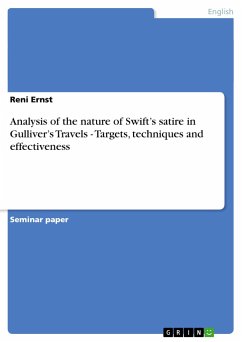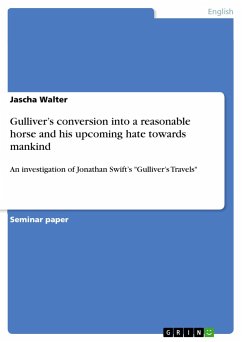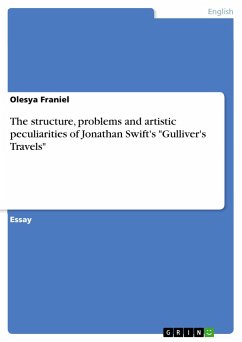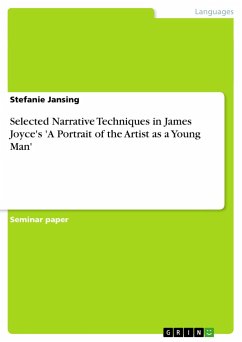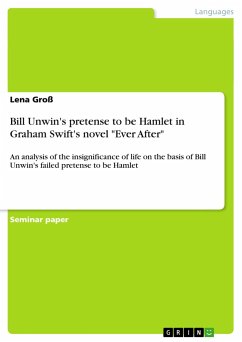Seminar paper from the year 2006 in the subject English Language and Literature Studies - Literature, grade: 1,0, University College Dublin (Faculty of Arts; School of English and Drama), course: Gulliver's Travels, language: English, abstract: In 1726 Jonathan Swift published Gulliver's Travels, a book which on the surface appeared to be a travel log to chronicle the adventures of Lemuel Gulliver on his voyages to four separate countries, but primarily serves as a satire on different aspects of human society and humankind itself. Swift's main purpose in using the satirical element in this book, as well as in most of his other works, is to "(...) vex the world rather than divert it (...)" (Swift 264) and thus to appeal to human's ability to change situations for the better. This believe derived from Swift's misanthropic worldview, not in the sense that he didn't have faith in human nature and had given up on any notion of ideals, but he rather, arisen out of disappointment in humankind, believed that man nevertheless was capable of reform. Swift himself laid bare his radically negative view of human beings in a letter to his friend Alexander Pope in 1725: "I have ever hated all Nations professions and Communityes and all my love is towards individualls for instance I hate the tribe of Lawyers, but I love Councellor such a one (...) and the rest principally I hate and detest that animal called man, although I hartily love John, Peter, Thomas and so forth." (Swift 264/ 265) Accordingly Swift's focus lies on the individual himself to realize unjust circumstances and to change them by acting. In order to achieve changes in society or even in human beings themselves, Swift makes use of different satirical techniques, which will be closer looked at in each of the four books of Gulliver's Travels, paying attention to Swifts targets and consequently to the effectiveness of his satire.

